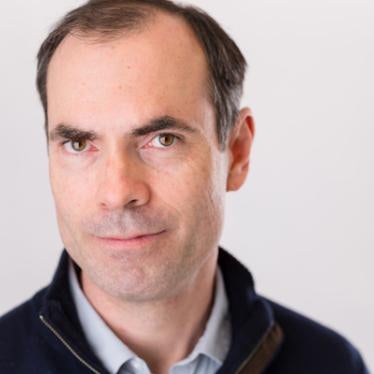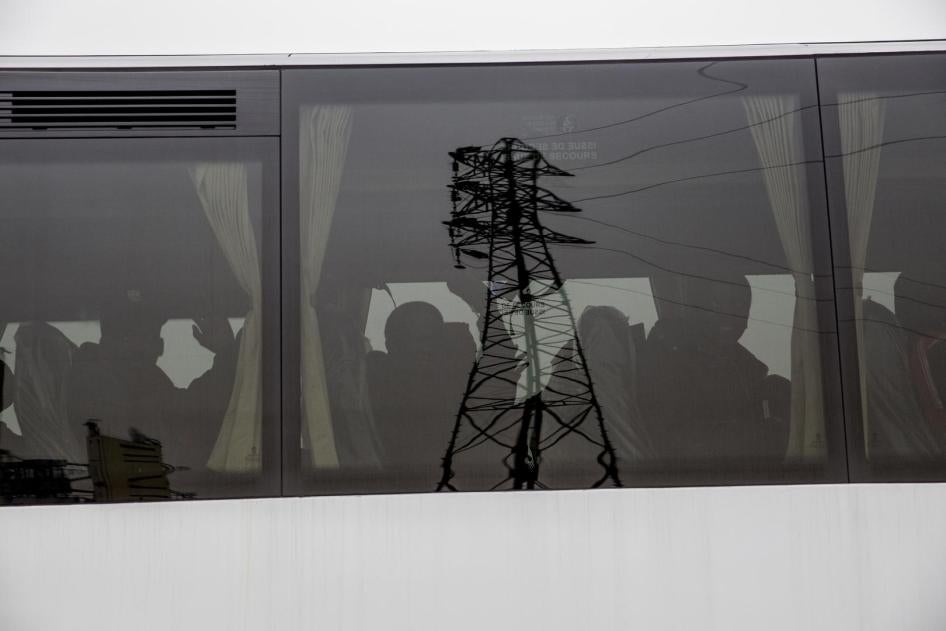Before it was demolished at the end of October, the sprawling migrant camp in Calais had become a symbol of Europe’s shame, a visible reminder of the European Union’s failure to find a humane, fair, and coordinated approach to migration.
But France, the United Kingdom, and the European Union still haven’t addressed the systematic shortcomings with the European asylum framework and the divergent ways that individual countries implement it, including with respect to unaccompanied children. The symbol may be gone, but the shame remains.
The timing and manner of the Calais camp’s closure appears to have been driven in large part by France’s desire to push Britain to take in as many of the unaccompanied children as possible, and in short order. Under EU regulations, the UK should take responsibility for reuniting unaccompanied children with close relatives who are lawfully present in that country, as long as the transfer is in the child’s best interest.
British officials were aware for months that as many as 400 unaccompanied children in the camp qualified for transfer, and it’s unconscionable that they were left to languish in the camp for so long.
In the week before the camp was closed, the UK accepted about 240 children for transfer under these regulations. The UK also took in about 50 children who have no family ties in Britain, using for the first time the “Dubs amendment,” a humanitarian provision of its immigration law inspired by the Second World War’s Kindertransport which was adopted in May.
Britain has signalled that it’s prepared to take several hundred more—as it should, in particular by facilitating the admission of as many Dubs cases as possible.
The same goes for other countries where unaccompanied children have qualifying relatives. When I was in the Calais camp in the days before it was closed, I spoke to children with family members in Germany and Sweden, for example. Child protection authorities in these and other countries should work with their French counterparts to assess potential transfers in such cases.
It’s likely, however, that most of the unaccompanied children from Calais will remain in France. They’re currently in new child migrant centers hastily set up across France in the weeks before the Calais camp was closed. Not much is known about these centers.
French authorities should ensure that all unaccompanied children receive adequate care and protection. That means more than food, shelter, and clothing. The children will need access to education, including assistance with language and to catch up to grade level, and guardians.
Effective access to guardians to help them make life decisions and to asylum procedures is essential if France is to avoid children disappearing from the system, seeking their own solutions out of frustration and exposing themselves to danger in the process.
Adults are also ill-served by current policies in France. They may wait 16 months or more for their asylum claims to be decided, and are not permitted to work during the first nine months. And many adult asylum seekers in Calais told Human Rights Watch in 2015 that French authorities’ inability to provide housing was an important factor in their decisions not to seek protection in France.
Part of the problem stems from the EU’s “Dublin regulation,” which says that most people should seek asylum in the first EU country they enter. The UK relied on the rule to deny any responsibility for adult asylum seekers in Calais.
France has decided not to apply this rule to adults who voluntarily relocated from the Calais migrant camp, but authorities have signalled that, going forward, they intend to return adult migrants to the first EU country they entered.
The European asylum framework is unfair in several respects. It means significant hardship for asylum seekers who can be trapped in the first EU country they enter, even if they have community or family ties elsewhere in Europe. And it disproportionately burdens some EU states, such as Greece, which are often those with the least capacity to receive and process asylum seekers, while allowing others such as the Czech Republic to largely avoid responsibility. The Dublin regulations should be replaced with ways to share responsibility equitably among EU members.
Without meaningful reform of EU asylum rules, France may find itself engaging in repeated “clearance” exercises, along the lines of Calais last month or Paris’ “Stalingrad” camp last week. A new reception center for migrants in Paris may reduce the numbers in makeshift camps, but its capacity of 400 is well below the 3,800 migrants who were just evicted from Stalingrad and elsewhere in northeast Paris.
EU-wide changes will take time, and discussions now underway are far from promising.
But a good start would be for France and the UK to ensure that all migrants have information and real access to fair and efficient asylum procedures, that reception conditions are adequate while asylum claims are pending, and that unaccompanied children receive the protections they desperately need.









